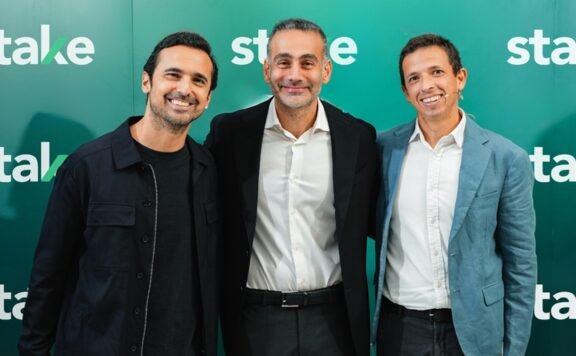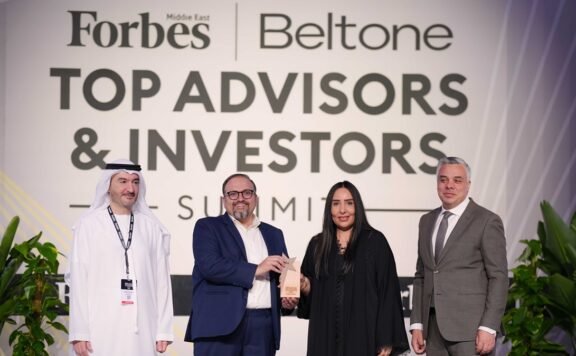The all-new GITEX Editions got underway on the opening day of GITEX GLOBAL as discussions focused on accelerating the growth of global late-stage advanced tech companies.
The latest addition to the packed schedule comes at a vital time where statistics showed there were more than 1,000 unicorns around the world in 2023. This week’s showcase will help support the next development while bringing together 59 top global unicorns with a combined valuation of $400 billion. The impressive list to have gathered includes Axelera, DeepL Synthesis AI, and Insilico Medicine.
In one of the sessions, the Founder and CEO of digital health unicorn Insilico Medicine, Dr. Alex Zhavoronkov joined Tamer Elhamy, Chief Partner Officer of Microsoft Middle East to discuss the importance of Merger and Acquisitions (M&A) and how AI companies are making their foundational models work smarter for enterprises.
The audience heard that the Middle East region is leading the way with digitalisation with more than 300 deals related to M&A completed in the first half of 2024 with half of those led by the UAE.
Scaling GCC business globally
The staging of GITEX Editions aligns with Dubai’s ambition to be the home of 30 startup unicorns by 2030 as the emirate continues to transform itself from a regional to a global entrepreneurship hub and support its digital ambitions. Today, Dubai is embarking on its journey with 40% of MENA’s scaleups already based in the emirate (https://apo-opa.co/3Y7Y3EF).
To help nurture the growth of tomorrow’s giants in the GCC region, Harrison Lung, Group Chief Strategy Officer of e& was joined by Tanuja Randery, Managing Director, Europe, Middle East and Africa of Amazon Web Services (AWS) in an insightful session that focused on the importance of collaboration.
Harrison Lung explained the importance of joining hands to forge stronger alliances. He said: “For us, it’s more about a transformation towards a global technology company. In the areas of partnering, the idea is to develop a win-win proposition and solving the needs of customers.”
With the region growing rapidly, Tanuja Randery said there is no better time than now for companies to enter the market and agrees collaboration is crucial. She said: “This region is so attractive in terms of the growth potential. I read a stat that showed that almost 70 per cent of businesses in the Middle East want to move most of their operations to the Cloud in two years’ time and this could unlock USD $733 billion of economic value by 2033. To make Cloud make accessible, we need partners and alliances.”
Driving investments for startups
Funding is a key pillar to drive growth – both in the long and short-term but can be often challenging. Steven Hoffman, Venture Investor, Author; and Chairman & CEO of Founders Space, gave key advice on how startups should adopt a vertical growth strategy for the future.
He said: “There is a lot of money going into AI but most of that is going into a handful of companies which are dominating the market and this is impacting the growth of startups. As such, a lot of money is now going into vertical AI where the specialist area is only on one focus such as healthcare or hospitality and this is centred around this business model and adding AI on top of this.”
In another session, Kai Zenner, Head of Office & Digital Policy Advisor of EU Parliament and Dr. Agostino Ghiglia, Board Member of the Italian Data Protection Authority took part in a broader discussion on the AI EU Act and its global implications for the next generation of AI-driven unicorns.





